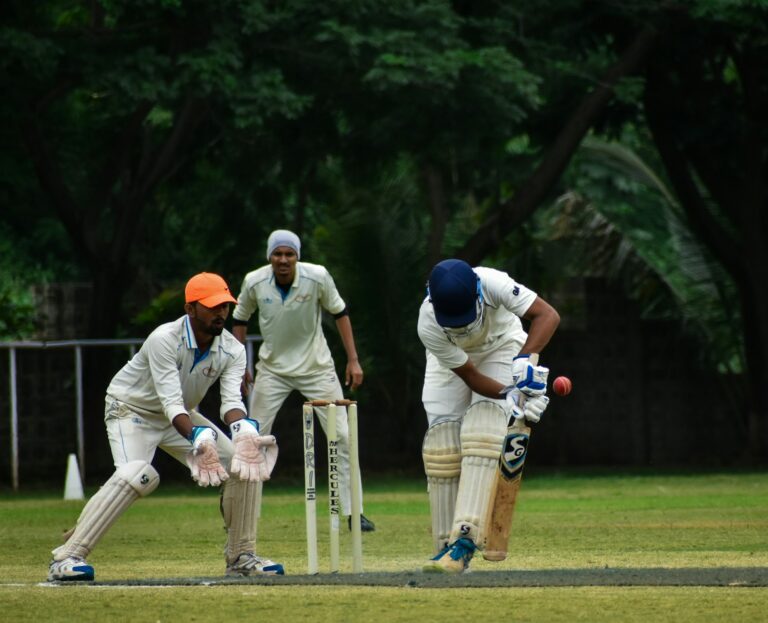Sports Betting and the Impact of Player Incentives on Performance
Play99exch, Allpaanel: Player bonuses are a common tool used by sports teams to incentivize their athletes to achieve specific performance goals. These bonuses can range from scoring a certain number of goals to reaching a particular statistical milestone. Research has shown that the introduction of player bonuses can increase individual player effort and motivationwhich in turn can positively impact the overall performance of the team.
Moreoverplayer bonuses have the potential to foster a sense of healthy competition among teammatesas everyone strives to reach their respective goals and earn their incentives. This competitive environment can lead to improved team cohesion and a shared commitment to success. Additionallythe financial rewards associated with player bonuses serve as a tangible form of recognition for players’ hard work and dedicationfurther driving their performance on the field.
The Role of Financial Incentives in Motivating Athletes
Financial incentives play a crucial role in motivating athletes to perform at their best. Whether it be performance-based bonusessigning bonusesor endorsement dealsthe prospect of earning more money can drive athletes to push themselves harder and strive for excellence. Studies have shown that athletes who are offered attractive financial rewards are more likely to put in the extra effort to achieve success on the field.
In addition to serving as a motivatorfinancial incentives can also help athletes stay focused and dedicated to their training regimens. Knowing that their hard work and dedication will be rewarded financially can give athletes the extra push they need to stay disciplined and committed to their sport. Financial incentives can create a sense of accountability and determination among athletesencouraging them to constantly improve and excel in their performance.
Analyzing the Effect of Performance-Based Contracts on Player Output
Performance-based contracts have become increasingly popular in the realm of professional sportswith teams and athletes alike viewing them as a way to align incentives and drive higher levels of performance. By linking financial rewards directly to on-field outputthese contracts aim to motivate athletes to consistently deliver their best efforts during competitions. This incentive structure not only benefits individual players by rewarding their exceptional performances but also enhances team dynamics by fostering a competitive environment where every member is encouraged to excel.
Research has shown that performance-based contracts can lead to improved player output and overall team success. When athletes know that their earnings are directly tied to their performance metricsthey are more likely to put in the extra effort to achieve set goals and objectives. This direct correlation between player output and financial rewards serves as a driving force behind enhanced performance levelsas athletes are constantly motivated to push their limits in pursuit of achieving both personal and team success.
Exploring the Relationship Between Player Earnings and Game Results
Player earnings are often viewed as a key factor in the performance of athletes on the field. Many believe that higher salaries can lead to increased motivation and better results on game day. Howeverthe relationship between player earnings and game results is not always straightforward.
Research has shown that while financial incentives can be a motivating factor for some athletesthere are other variables at play that can impact player performance. Factors such as team dynamicscoaching strategiesand individual skills all contribute to the outcome of games. Thereforeit is essential to consider a holistic approach when analyzing the relationship between player earnings and game resultstaking into account various factors that can influence performance on the field.
• Financial incentives can motivate some athletesbut other variables also impact player performance
• Team dynamicscoaching strategiesand individual skills all contribute to game outcomes
• Holistic approach needed to analyze relationship between player earnings and game results
The Impact of Sponsorship Deals on Athlete Performance
Sponsorship deals have become a significant aspect of the sports industrywith athletes often securing lucrative contracts to endorse various products and brands. These deals not only offer financial benefits but also play a role in influencing the performance of athletes on the field or court. The association with a reputable brand can enhance an athlete’s public image and instill a sense of responsibility to perform at their best to uphold the sponsor’s reputation.
Furthermoresponsorship deals can provide athletes with access to top-notch training facilitiesequipmentand resources that can contribute to their overall performance. By aligning themselves with successful and reputable sponsorsathletes may feel motivated to excel in their sport and meet the expectations set by their endorsing partners. The financial stability afforded by these sponsorships can also alleviate pressure on athletesallowing them to focus on their training and competition without the distraction of financial worries.
How Endorsement Deals Influence Player Incentives and Effort
Endorsement deals play a significant role in shaping player incentives and effort in the world of sports. These lucrative partnerships not only offer financial rewards but also provide added motivation for athletes to excel in their respective fields. By aligning themselves with top brands and productsplayers are not only rewarded monetarily but also gain recognition and prestige in the industry.
The influence of endorsement deals extends beyond monetary gainas they often serve as a driving force behind a player’s dedication and performance on the field. Athletes who secure high-profile endorsements are inclined to maintain their reputation and uphold certain standards both professionally and personally. This added layer of responsibility can push players to strive for excellenceelevating their overall performance and contribution to their teams.
The Connection Between Player Salaries and On-Field Success
Player salaries in professional sports have long been a topic of discussion when it comes to their impact on on-field success. The theory behind high player salaries suggests that well-compensated athletes will be more motivated to perform at their best during games. It is believed that the promise of a generous paycheck serves as a powerful incentive for players to push themselves to excel on the fieldresulting in improved team performance.
Howeversome critics argue that there isn’t always a direct correlation between player salaries and on-field success. They suggest that factors such as team chemistrycoaching strategiesand individual player skills play a more significant role in determining a team’s successrather than the amount of money players are paid. While financial incentives can certainly influence player motivationthe complex nature of team sports means that success is often the result of a combination of various factors working together harmoniously.
Examining the Effect of Prize Money on Player Drive and Determination
Prize money has long been utilized by sports organizations as a means to incentivize athletes and enhance their drive for success. The potential financial rewards associated with winning can fuel a player’s determination to perform at their bestpushing them to go the extra mile in pursuit of victory. The allure of prize money serves as a tangible and immediate incentive for athletes to give their all during competitionsleading to heightened levels of motivation and focus on achieving positive outcomes.
Moreoverthe impact of prize money on player drive and determination extends beyond the individual athlete to influence team dynamics and overall performance. When players are aware of the significant rewards awaiting them in the event of successit can foster a sense of collective motivation within the team. This shared goal of winning not only enhances team cohesion and unity but also instills a heightened sense of purpose and determination among playersdriving them to work together towards a common objective of securing the prize money and achieving victory.
Understanding the Link Between Player Incentives and Team Success
Player incentives play a crucial role in shaping team success in the realm of sports. When athletes are motivated by the promise of bonuses or rewardsthey tend to push themselves harder on the field or courtultimately leading to enhanced team performance. These incentives can serve as powerful tools in driving players to give their best and work collaboratively towards achieving common goals.
Moreoverthe correlation between player incentives and team success highlights the impact of individual drive on collective achievement. By aligning player rewards with team objectivescoaches and managers can foster a winning mentality among athletesencouraging them to put their personal interests aside and prioritize the greater good of the team. Ultimatelyunderstanding and effectively utilizing player incentives can significantly contribute to the overall success and competitiveness of a sports team.
The Importance of Fair Compensation in Maximizing Player Performance
Fair compensation plays a crucial role in maximizing player performance within the realm of professional sports. When athletes feel adequately rewarded for their contributionsthey are more likely to feel motivated and driven to excel on the fieldcourtor pitch. This can lead to an improvement in overall team performance as each player strives to deliver their best efforts in pursuit of personal and collective success.
Moreoverfair compensation acts as a form of recognition and acknowledgment of an athlete’s skillsdedicationand hard work. When players feel valued and fairly compensated for their effortsthey are more inclined to invest time and energy into traininghoning their skillsand maintaining peak physical condition. This cycle of recognitionfair compensationand enhanced performance creates a positive feedback loop that benefits both the individual athlete and the team as a whole.
How do player bonuses impact team performance?
Player bonuses can serve as motivation for athletes to perform at their bestleading to improved team performance.
What is the role of financial incentives in motivating athletes?
Financial incentives can drive athletes to work harder and put in more effortas they are rewarded for their performance.
How do performance-based contracts affect player output?
Performance-based contracts incentivize players to achieve specific goals or targetswhich can result in increased productivity and output.
What is the relationship between player earnings and game results?
Higher player earnings can often correlate with better game resultsas athletes may be more motivated to succeed when well-compensated.
How do sponsorship deals impact athlete performance?
Sponsorship deals can provide additional financial incentives for athletesmotivating them to perform well both on and off the field.
How do endorsement deals influence player incentives and effort?
Endorsement deals can increase a player’s earning potentialgiving them added motivation to excel in their sport and maintain a positive public image.
What is the connection between player salaries and on-field success?
Player salaries can reflect a team’s investment in their athleteswhich can in turn influence player motivation and drive for on-field success.
How does prize money affect player drive and determination?
Prize money can incentivize players to push themselves to achieve successas they have the opportunity to earn additional rewards for their performance.
Why is fair compensation important in maximizing player performance?
Fair compensation ensures that athletes feel valued and fairly rewarded for their effortsleading to increased motivationcommitmentand overall performance on the field.







